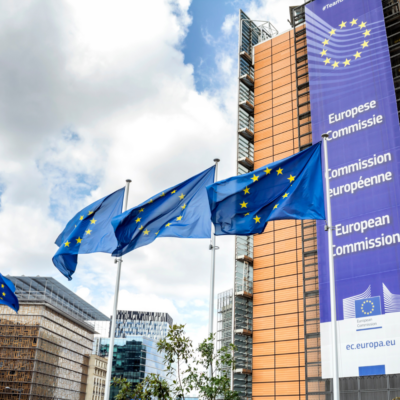13 October 2025
UFE’s reply to the EC call for evidence on Energy Security

Priority should be given to implementation, as several of these regulations have only recently entered into force or are about to be adopted. Any initiative aimed at revising existing frameworks especially “Electricity Risk Preparedness Regulation” and “Gas Security of Supply Regulation” should primarily seek to strengthen coordination, while maintaining a minimum level of harmonisation of crisis rules. Therefore, UFE advocates for the “Smart streamlining” (policy option 1) to ensure streamlined implementation of existing provisions.
The resilience of the system must be tackled from all angles
Cybersecurity
System operators are increasingly confronted with sophisticated threats. Improving cybersecurity risk management should start with the full implementation of existing regulation, in particular the NIS 2 directive provisions which sets minimum requirements for cybersecurity risk management and reporting obligations, or the Network Code on Cybersecurity (NCCS).
Physical protection of infrastructure
Critical infrastructure, especially substations, must be protected against physical attacks well in advance of crises. This protection should be adapted to specificities of a more decentralised system with increasing numbers of small-scale generation units and must apply both to existing assets and to new projects. 2
Workforce training, including first aid and crisis response, is equally necessary. Implementing the Directive on the resilience of Critical Entities must be a priority.
Climate resilience
Climate change and environmental degradation are multiplying extreme weather events that threaten the physical security of energy infrastructure and can result as power shortages. UFE stresses the importance of consistent hazard modelling by system operators, in coordination with their Member State, to prepare for and predict, as far as possible, the impacts of the most severe weather events on national and cross-border power systems.
Decarbonisation, adequacy and flexibility
A domestic decarbonised energy system improves resilience, independence and energy efficiency, and contributes to the fight against climate change. Such a system implies a growing need for electrification and, to accompany this electrification as and when it materialises, all decarbonised solutions must be mobilised to address adequacy and flexibility challenges in Europe (existing generation assets, development of new generation assets in accordance with the growth of the demand, demand side response, storage solutions,…), as well as interdependencies of European systems.
As the RePowerEU initiative has successfully demonstrated, security of supply is at the core of the EU’s energy security. Developing more homegrown clean electricity should remain a priority to protect European sovereignty and resilience. Diversifying energy sources, suppliers and routes as well as reducing dependence on imported fossil fuels remain the two most pressing challenges. Securing energy-related supply chains and developing the recycling activities decrease risks of shortages. Given that the EU still imports large volumes of fossil fuels every year, (in 2024 the EU imported a total of 720.4 million tonnes of energy products), accelerating the deployment of new domestic decarbonised generation and flexibility assets must be a priority, while maintaining a technology neutral approach that avoids distortions of competition.
One of the European Union’s key responsibilities is to preserve the integrity of the Internal Energy Market, while ensuring security of supply and supporting the transition to a decarbonised energy system. In situations where exceptional measures — such as temporary market interventions or derogations from normal rules — are deemed necessary to address specific crises, they must be clearly justified, strictly time-bound, regularly reviewed, and phased out once the underlying circumstances no longer justify their application. To improve visibility on futures markets and to remove obstacles to longer-term private contracts, players need a diversified European “toolbox”. Facilitating, in particular through public 3 guarantees, the conclusion of PPAs for all low-carbon technologies is essential.
UFE welcomes the fact that the EMD reform recognises CRMs as powerful tools to ensure cost recovery for existing production means and safeguard energy security. Member States should retain the possibility to establish such mechanisms.
Beyond traditional frequency and voltage ancillary services, inertia is key to ensure the stability of the system. Considering the decreasing number of generation facilities providing rotational inertia in the European power system, inertia must also be assessed, valued, and secured to ensure the stability of the system for secure system operation and SoS.
The Risk-Preparedness Regulation provides for common processes to identify and anticipate risks. In crisis situations, effective cooperation and coordination between Member States, electricity suppliers and system operators are essential to ensure an efficient response on the ground. At the same time, a minimum level of harmonisation of crisis rules is necessary to preserve market functioning and integration, including during periods of stress, and to ensure that all relevant actors can play their role effectively.
Guaranteeing a secure and sustainable energy system in the EU requires accelerating carbon-free electrification, while reinforcing resilience against cyber, physical and climate-related threats. At the same time, the EU must avoid the creation of new strategic dependencies, particularly on critical raw materials or third countries. Policymakers must also ensure that the pursuit of energy security does not disproportionately impact consumers or undermine the competitiveness of European industry. Finally, strengthening the internal market and ensuring adequate investment tools are indispensable to make security of supply the backbone of Europe’s energy transition.
Find out more
06 January 2026
Electrification Action Plan


About us
The Union of the French Electricity Industry is the trade association of the French electricity sector. We bring together companies from the whole value chain of the electricity industry.
Find out more










